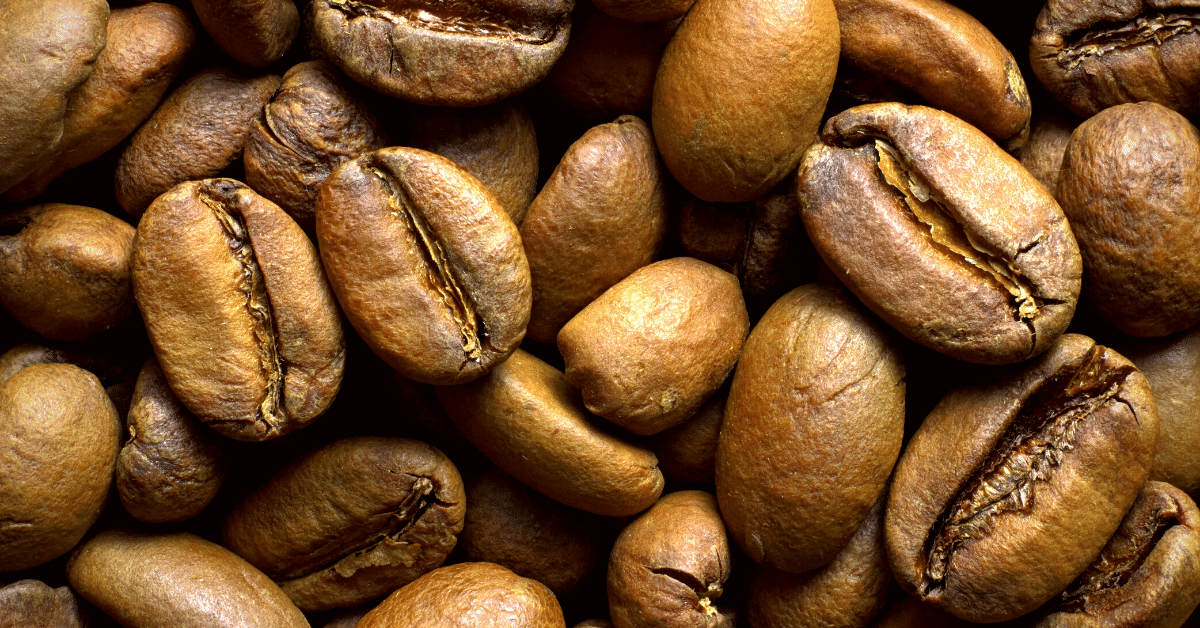Chicory coffee has a rich history spanning centuries and continents, from Napoleonic France to New Orleans’ legendary café culture. This earthy, caffeine-free alternative offers a distinctive flavor profile that either captivates or confuses coffee drinkers. Whether you’re seeking a coffee substitute, looking to reduce caffeine, or simply curious about this Southern tradition, understanding chicory coffee opens the door to a unique beverage experience.
This comprehensive guide explores what chicory coffee really is, its fascinating history, potential health benefits, how to brew it properly, and the best chicory coffee brands to try. By the end, you’ll know whether chicory deserves a place in your coffee routine.
What Is Chicory Coffee?
Chicory coffee is made from the roasted and ground root of the chicory plant (Cichorium intybus), a hardy perennial with bright blue flowers related to dandelions. When roasted, dried, and ground, chicory root produces a dark, coffee-like powder that can be brewed alone or blended with regular coffee.
The chicory plant itself is native to Europe but now grows worldwide. The same plant produces radicchio and endive (leafy vegetables), but for coffee purposes, only the long taproot is used. After harvesting, roots are cleaned, roasted at high temperatures until dark brown, then ground to a consistency similar to coffee grounds.
Taste Profile
Chicory has a distinctive flavor that divides opinion:
- Earthy and woody: Similar to coffee but earthier, with soil-like undertones
- Slightly bitter: Less bitter than dark roast coffee but noticeably bitter
- Nutty notes: Hints of roasted nuts, especially when blended with coffee
- No acidity: Unlike coffee, chicory has virtually no acidic bite
- Naturally sweet: Some perceive mild caramel-like sweetness
When blended with coffee (the traditional New Orleans style), chicory mellows coffee’s acidity while adding body and a subtle chocolate-like note. Alone, pure chicory tastes distinctly different from coffee—similar but unmistakably its own beverage.
The History of Chicory Coffee
European Origins
Chicory as a coffee substitute emerged in France during Napoleon’s Continental Blockade (1806-1814), when British naval blockades made coffee scarce and expensive. French citizens turned to chicory root as an affordable alternative, discovering that roasted chicory mimicked coffee’s dark color and bitter notes.
The practice spread throughout Europe, particularly in France, the Netherlands, and Belgium, where chicory-coffee blends remain popular today. During both World Wars, chicory again served as a coffee extender when supplies were rationed.
New Orleans and American Tradition
French settlers brought chicory coffee to Louisiana in the 1700s, but it became truly embedded in New Orleans culture during the Civil War (1861-1865). The Union naval blockade cut off coffee supplies, and New Orleanians turned to chicory to stretch their limited coffee beans.
After the war ended and coffee became available again, New Orleans residents had grown to love the distinctive flavor of coffee-chicory blends. The combination became a permanent fixture of local culture, served at legendary establishments like Café Du Monde (founded 1862), where café au lait with chicory remains the signature drink.
Today, chicory coffee is synonymous with New Orleans, representing the city’s ability to transform scarcity into tradition and create something uniquely its own.
Health Benefits of Chicory Coffee
Caffeine-Free Alternative
Pure chicory contains zero caffeine, making it ideal for:
- People sensitive to caffeine or with anxiety disorders
- Pregnant women limiting caffeine intake
- Anyone trying to reduce caffeine dependence
- Evening coffee cravings without sleep disruption
- People with heart conditions avoiding stimulants
Even chicory-coffee blends typically contain 25-50% less caffeine than pure coffee, providing a gentler option for those wanting to cut back gradually.
Prebiotic Fiber Content
Chicory root is exceptionally rich in inulin, a prebiotic fiber that feeds beneficial gut bacteria. A single cup of chicory coffee can contain 5-8 grams of inulin.
Digestive benefits:
- Promotes healthy gut bacteria (probiotics feed on inulin)
- Improves bowel regularity and relieves constipation
- May enhance mineral absorption (calcium, magnesium)
- Supports overall digestive health
Important note: High inulin content can cause gas, bloating, and digestive discomfort, especially when first introduced. Start with small amounts and increase gradually.
Anti-Inflammatory Properties
Research suggests chicory root contains bioactive compounds with anti-inflammatory effects:
- May reduce inflammation markers in the body
- Contains antioxidants that combat oxidative stress
- Traditional medicine uses chicory for arthritis and joint pain
While promising, most research is preliminary or conducted on animals. More human studies are needed to confirm anti-inflammatory benefits.
Potential Liver Health Support
Some studies suggest chicory root may support liver function:
- May protect against liver damage in animal studies
- Traditional use as a liver tonic in herbal medicine
- Contains compounds that may support bile production
Again, human research is limited, and chicory shouldn’t replace medical treatment for liver conditions.
Blood Sugar Management
Preliminary research indicates chicory root may help regulate blood sugar:
- Inulin fiber slows digestion and sugar absorption
- May improve insulin sensitivity in some studies
- Lower glycemic impact than regular coffee with sugar
Diabetics should monitor blood sugar when introducing chicory and consult healthcare providers about dietary changes.
Health Cautions
Allergies: People allergic to ragweed, marigolds, daisies, or other Asteraceae family plants may react to chicory.
Pregnancy: While chicory coffee is caffeine-free, high amounts may stimulate menstruation or uterine contractions. Pregnant women should consult doctors before consuming chicory in medicinal amounts.
Gallstones: Chicory may stimulate bile production; those with gallstones should exercise caution.
Digestive sensitivity: The high inulin content causes gas, bloating, and digestive upset in some people, especially those with IBS or FODMAP sensitivities.
How to Brew Chicory Coffee
Pure Chicory Coffee
Ingredients:
- 2 tablespoons ground chicory root
- 8 oz water
- Milk or cream (optional)
- Sweetener (optional)
Drip method:
- Place chicory in coffee filter
- Brew like regular drip coffee
- Add hot milk for café au lait style
- Sweeten if desired (chicory is less bitter than coffee)
French press method:
- Add 2 tablespoons chicory to French press
- Pour 8 oz boiling water over chicory
- Steep 5-7 minutes (longer than coffee)
- Press plunger slowly
- Serve immediately
Stovetop method (traditional):
- Combine chicory and water in small pot
- Bring to boil, reduce heat
- Simmer 5 minutes
- Strain through fine-mesh sieve or cheesecloth
- Serve hot
Coffee-Chicory Blend (New Orleans Style)
Traditional ratio: 70% coffee, 30% chicory (like Café Du Monde)
Mild blend: 80-85% coffee, 15-20% chicory
Bold blend: 50% coffee, 50% chicory
Brewing instructions:
- Mix coffee and chicory grounds in desired ratio
- Brew using your preferred method (drip, French press, pour-over)
- Serve with hot milk for authentic café au lait
- Add sugar to taste
Café au lait (New Orleans style):
- Brew coffee-chicory blend strong
- Heat whole milk until steaming (don’t boil)
- Pour equal parts coffee and hot milk simultaneously into cup (one in each hand)
- Add sugar if desired
- Serve with beignets for authentic experience
Cold Brew Chicory
Chicory adapts beautifully to cold brew:
- Combine 1 cup chicory (or chicory-coffee blend) with 4 cups cold water
- Stir, cover, refrigerate 12-24 hours
- Strain through fine-mesh sieve lined with cheesecloth
- Dilute concentrate with water or milk to taste
- Serve over ice
Cold brew chicory is even smoother and less bitter than hot-brewed, highlighting natural sweetness.
Best Chicory Coffee Brands
Café Du Monde Coffee & Chicory
The New Orleans institution’s retail blend—70% dark roast coffee, 30% chicory. This is the benchmark against which all other chicory blends are measured. Bold, smooth, and authentically New Orleans.
French Market Coffee & Chicory
Another New Orleans brand with deep roots (founded 1890). Similar to Café Du Monde but with slightly different roast profile—some prefer it for being marginally less bitter. Available in various blends from 100% coffee to pure chicory.
Community Coffee with Chicory
Louisiana’s largest family-owned coffee company offers several chicory blends. Their “Coffee & Chicory” medium-dark roast balances traditional chicory flavor with smoother, less aggressive roasting. Good entry point for chicory beginners.
Luzianne Coffee & Chicory
Another Southern staple, particularly popular for iced coffee. Luzianne’s blend is milder than Café Du Monde, making it approachable for those new to chicory.
Teeccino (Chicory-Based Coffee Alternative)
For those avoiding coffee entirely, Teeccino offers 100% caffeine-free herbal “coffee” blends based on chicory, carob, and other roasted herbs. Available in flavors like French Roast, Hazelnut, and Vanilla Nut. It’s not trying to be coffee—it’s its own category.
Pure Chicory Root (For DIY Blending)
Buy pure roasted chicory granules or powder to create custom blends. This allows you to control the coffee-to-chicory ratio precisely and experiment with different coffee beans.
Making Your Own Chicory Coffee Blend
Creating custom blends lets you find your perfect ratio:
Start conservative: Begin with 10-15% chicory, 85-90% coffee. Taste and adjust upward if you want more chicory character.
Experiment with ratios:
- 5-10% chicory: Subtle earthiness, reduces acidity
- 15-20% chicory: Noticeable chicory flavor, still coffee-forward
- 25-30% chicory: Traditional New Orleans ratio, balanced
- 40-50% chicory: Bold chicory presence, half the caffeine
- 100% chicory: Complete coffee substitute, no caffeine
Best coffee for blending:
- Dark roasts: Match chicory’s roasted character
- Brazilian beans: Nutty, low-acid, complement chicory well
- Colombian: Balanced, won’t fight chicory flavor
- Avoid light roasts—the bright acidity clashes with chicory’s earthiness
Chicory Coffee vs Regular Coffee
Taste Comparison
Coffee: Bright, acidic, complex flavor notes (fruit, chocolate, caramel depending on origin), caffeine buzz
Chicory: Earthy, woody, nutty, low acidity, no caffeine, slightly sweet
Health Comparison
Coffee:
- Caffeine provides energy and focus
- High in antioxidants
- May increase anxiety in sensitive individuals
- Can cause digestive issues (acidic)
- Addictive (caffeine dependence)
Chicory:
- Zero caffeine (won’t disrupt sleep)
- Prebiotic fiber supports gut health
- May cause gas/bloating from inulin
- Less studied than coffee for health effects
- Non-addictive
Cost Comparison
Chicory is generally cheaper than quality coffee beans. A pound of pure chicory costs $8-12, while specialty coffee runs $15-20+ per pound. Blending chicory with coffee reduces overall cost while adding volume.
Who Should Try Chicory Coffee?
Great For:
- Caffeine-sensitive individuals: Enjoy coffee taste without jitters or sleep disruption
- Pregnant women: Safe coffee alternative (in moderation)
- Acid reflux sufferers: Lower acidity than coffee
- Coffee addicts trying to quit: Provides ritual without caffeine dependence
- Evening coffee cravers: Satisfy the urge without affecting sleep
- Health-conscious drinkers: Prebiotic fiber benefits
- Cultural explorers: Experience New Orleans tradition
- Budget-conscious consumers: Stretch coffee supply
May Not Be For:
- Coffee purists who love specialty coffee nuances
- Those needing caffeine for energy/productivity
- People with ragweed allergies
- Individuals with IBS or sensitive digestion (inulin can trigger symptoms)
- Anyone who dislikes earthy, woody flavors
Chicory in Other Cultures
Beyond New Orleans, chicory appears in various coffee traditions:
France: “Chicorée” is still consumed, especially in northern regions. Often mixed with hot milk for breakfast.
India: South Indian filter coffee sometimes includes chicory, particularly in Tamil Nadu and Karnataka.
Southeast Asia: Vietnam and parts of Indonesia occasionally blend chicory with robusta coffee for added body.
Mediterranean: Traditional in parts of Italy, Greece, and Turkey as a coffee substitute or adulterant.
Storing Chicory Coffee
Store chicory like coffee:
- Airtight container in cool, dark place
- Avoid moisture (chicory is hygroscopic)
- Use within 6-12 months for best flavor
- Ground chicory loses flavor faster than whole roots
- Pre-blended coffee-chicory mixes: follow coffee storage rules
Conclusion: Is Chicory Coffee Worth Trying?
Chicory coffee occupies a unique niche—it’s not trying to be coffee, but it offers a compelling alternative for specific situations. The caffeine-free nature, prebiotic benefits, and distinctive earthy flavor make it worth exploring, especially if you’re looking to reduce caffeine, support gut health, or experience New Orleans culinary tradition.
Start with a reputable blend like Café Du Monde (30% chicory), brewed with hot milk New Orleans-style. If you enjoy it, experiment with higher chicory ratios or pure chicory. If the earthiness isn’t for you, that’s fine—chicory has a distinct taste that genuinely isn’t for everyone.
The beauty of chicory is its versatility. Use it to:
- Cut caffeine gradually (blend more chicory over time)
- Enjoy evening coffee without insomnia
- Reduce coffee costs by extending your supply
- Experience a piece of New Orleans history
- Support digestive health with prebiotic fiber
Whether you embrace it as a daily drink or keep it as an occasional alternative, chicory coffee deserves recognition as more than just a coffee substitute—it’s a tradition with genuine merit and a flavor profile worth appreciating on its own terms.
Contains affiliate links. As an Amazon Associate, we earn from qualifying purchases at no cost to you.










